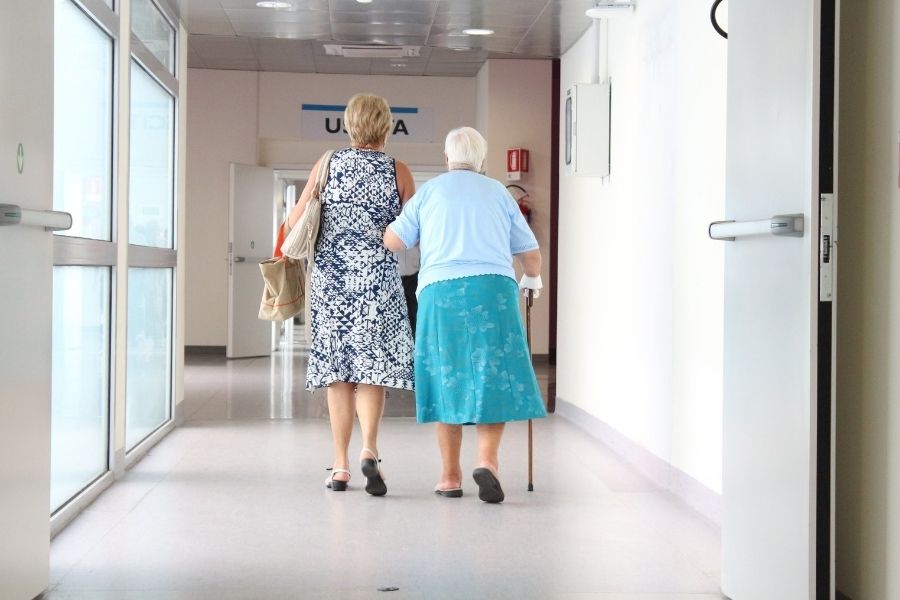Geriatric Counselling
“Aging is an extraordinary process where you become the person you always should have been.” – David Bowie

Old age or senescence is the final stage, and can be the most rewarding in the lifetime of an individual. It is a phase when a majority of an individual’s social aspects are influenced by the relationship of the physiological effects of aging and the collective experiences and shared values of a generation particular to the structure of the society in which it exists. While being often perceived as the ‘Golden years’ in an adult’s life, in many ways, there are several challenges that the elderly population face.
The combination of aging and mental health problems produces a double disadvantage, and it has become crucial to draw attention to this issue.
At SCS, we offer geriatric counselling services to assist older adults who face difficulty with the transitions of aging, with regards to their mental, psychological and emotional wellbeing, and also provide support to enable them to age with dignity.
Health issues and stress among the elderly population are among the most noticeable traits as they approach and pass middle age. The intervention of a therapist or a mental health professional may help ease the adverse effects of this transition.
Understanding Geriatric Issues, Challenges faced by the Elderly
The elderly population is large in general and growing as we are living much longer due to the advancement in health care and improved living conditions.
According to the World health Organization website, “People worldwide are living longer. Today, for the first time in history, most people can expect to live into their sixties and beyond. By 2050, the world’s population aged 60 years and older is expected to total 2 billion, up from 900 million in 2015. Today, 125 million people are aged 80 years or older. By 2050, there will be almost this many (120 million) living in China alone, and 434 million people in this age group worldwide. By 2050, 80% of all older people will live in low- and middle-income countries.”
There is a growing body of evidence that suggests that psychological and sociological factors have a significant influence on an individuals’ transition to ageing process. It should be realized that mental health and older people’s services have, for long, been neglected as there are lots of stigma related to the discussion relating to mental health issues and out-dated stereotypes about elderly people by the communities they live in.
These notions lead to isolation and marginalization, due to which, within the broader spectrum of care, the promotion of mental health and well-being in later life has been the least visible area of concern.
With advancing age, a common notable aspect is the inevitable loss of connection with friends and other social networks that eventually lead to difficulty to initiate new friendships.
Older adults are often faced with numerous physical, psychological and social role changes that challenge their sense of self and capacity to live happily. They even face difficulty in distinguishing the normal effects of advancing age from signs of actual physical or mental illness.
A normal part of the aging process is to experience some changes in cognition. Studies have found that healthy older adults often experience mild decline in the areas of:
- Visual and verbal memories
- Visuo-spatial abilities
- Immediate memory or the ability to name objects
- Hearing and vision
- Bodily strength
- Appetite and energy level
A study was conducted to investigate the relationships among depression, loneliness and sociability in elderly people. Often they lose their sense of purpose and become victims of various psychological and mental conditions, which include depression, loneliness, paranoia and anxiety in old age. These can result from living alone due to lack of close family ties, reduced connections with their culture of origin, financial insecurities, physical health issues and mental health issues such as Alzheimer’s, which is a progressive condition that also impacts memory and mental function.
All of these result in an inability to actively participate in community activities that further lead to adversely affecting them emotionally with a loss of confidence.
Sadly, these conditions are often overlooked by their children and younger ones. A therapy counselling can help the elderly to guide them to feel better and contented with themselves that can enable them to live a better life.
As a society, we should do more to make things easier for our aging population to help them cope with the biggest challenges that comes with age. With innovative ways to involve the elderly in the community through social events, we not only help them maintain a sense of identity and self-esteem but also benefit from the abundance of knowledge and experience they have gained over the years.
Counselling provides for an Informal social support to older people in difficult situations that can account for many positive aspects contributing to physical and mental well-being. It gives a sense of personal control, autonomy and competence in reducing the negative effects of stressful life situations that can in turn help older adults progressing through the period of aging more easy.
Importance of Geriatric Counselling
Geriatric Counselling is a process involving physical and psychological assessment services for older adults. The role of a therapist along with counselling is to provide direct care, treatment for mental health issues, and assistance with problems interfering with a senior’s quality of life.
A health care professional can help older adults become accustomed to the changes that are common during this transitional phase of aging. Therapy can help elderly people to manage their emotions and help them find new sources of support systems for enjoyment and add meaning.

Counselling therapy for the elderly population has been found to be effective and clearly superior and safer to singularly depending on medications because of the increased risk of pharmacological side effects.
A combination of counselling and medications prescribed by trained physicians and mental health experts can be a successful intervention for older adults with psychological symptoms.
Geriatric/Old age Counselling at SCS
At SCS, we are committed to assist and address the challenges faced by the older population and help them with therapy to learn how to talk about and share thoughts and feelings. We attempt at reducing the communication barriers during the initial course of therapy, gradually proceeding towards addressing the emotional and mental health issues and how to respond to them, while learning new behaviours and coping skills. We help you to be able to talk about problems, and to be introduced to the means to respond to them which ultimately results into a positive influence over one’s life.
We understand that there are varied characteristics that each elderly individual encompasses, which is an array of different life experiences, personality traits, and goals for counselling.
Our team of trained mental health care experts working with the elderly are trained to operate within a multidisciplinary approach, which involves working in coalition with other care providers, such as the primary care physician, a case manager, or a concerned family member.
Creating a trusting relationship between the therapist and the client is more easily facilitated if the person has confidence in the network of those providing care.
At SCS, we are primarily focused to identify and treat the emotional and psychological triggers that have possible negative impact on the mental health of the elderly,
Dealing depressive lows, retirement, loosening ties with family and friends, situations like these often make the elderly feel sad, lonely and depressed all at the same time.
Social interaction, Counsellors can suggest participation in activities that include social interactions during their free time and keep them occupied.
Trauma, neglect by loved ones or loss of a family member can lead to significant trauma in old age. In such cases, counselling by a trained therapist can help the elderly keep a stable mind and the encouragement to move on.
It is an undeniable fact that no one can escape old age, but being in a circle of self-concern, self-appreciation and self-engagement can help the older live with dignity and peace. They can also find new meaning in their lives where otherwise, due to decline of physical mobility and dexterity, have restricted them.
Billy Graham – “Old age may have its limitations and challenges,
but in spite of them, our latter years can be some of the most rewarding and fulfilling of our lives.”
